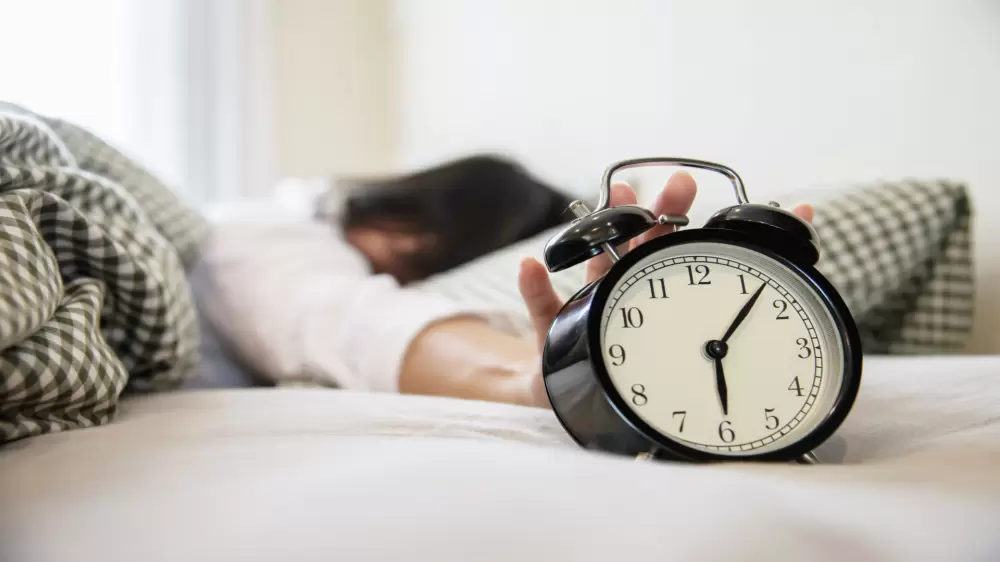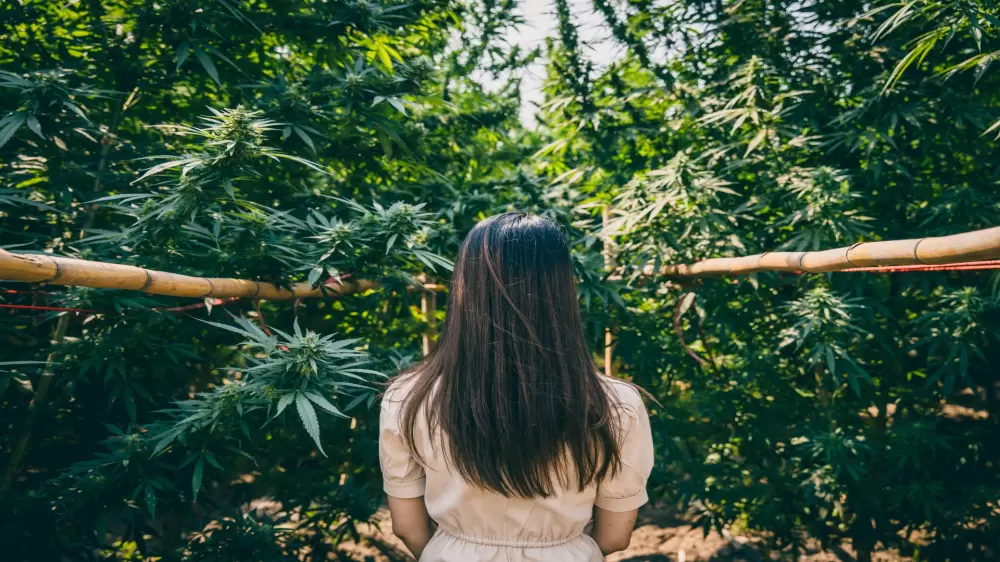HOW CANNABIS AFFECTS YOUR DREAMS

There are many people who like to use cannabis before going to sleep. Weed can help you fall asleep a little easier. But the question is what exactly is the influence of cannabis on your night's sleep, and in particular on your dreams. When you've used weed for a long time, you may notice that you hardly dream or even don't dream at all. And then when you stop using it, your nights are suddenly filled with bizarre, intense and vivid dreams. Dreams have always been an elusive phenomenon, but what is the influence of cannabis on dreams and is it necessary to adjust your cannabis use?
The importance of dreams
Dreaming in your sleep is part of one of the sleep phases you go through at night. All these phases are important to be able to rest well. During the night, you go through the sleep phases several times. In phase 1 you sleep very lightly and this phase lasts the shortest. In stage 2, your heart rate slows and your body temperature drops. Sleep deepens. 50% of the sleep cycle is spent in this sleep phase.
In phase 3 you sleep deeply. If someone were to wake you up in this sleep phase, you have trouble waking up, and you feel drowsy. You also can't think properly, and that can take up to an hour. In phase 3, your body is busy repairing tissues and strengthening the immune system. So this is a very important phase and essential to stay healthy. The fourth phase is REM sleep, the phase in which you dream. REM stands for rapid eye movement: these are the characteristic rapid eye movements that you can see in a dreamer. Every night, you spend a total of 2 hours in the REM sleep phase.
REM phase: more than just dreaming
In the past, it was not clear what dreaming was good for. Dreaming, the REM phase, was usually dismissed as meaningless. But many scientists now think differently. Scientists studying sleep confirm that dreaming is important to stay healthy and function well. This phase is necessary to be able to process emotions that you have gone through during the day. In addition, dreaming is important to improve your creativity and problem-solving ability.
According to researchers, dreams also play a role in processing knowledge, which you convert at an unconscious level into overarching rules, structures, and laws. In addition, the REM phase is the only time of the day when the level of the stress hormone noradrenaline is at its lowest. So dreaming is not just funny or fascinating. It is a vital part of the recovery process of the body and of the brain in particular.
Cannabis and its influence on dreams
But what is the influence of cannabis on dreams? It is not so easy to answer this. Many people use cannabis to fall asleep faster, and it is true that cannabis can help with this. From various researches also show that cannabis can shorten the time we spend in REM sleep.
Whether that is positive or negative depends on several factors. The fact that cannabis has this effect is due to THC (tetrahydrocannabinol), the psychoactive substance in the plant. It seems that THC can suppress REM sleep and therefore the ability to dream. You just don't stay in this sleep phase long enough to dream.
The phenomenon of REM rebound
Another common occurrence among cannabis users is the REM rebound. When you have used a lot of weed for a long time and then stop using it, you can suffer from very intense, vivid and strange dreams. REM rebound means your body misses the REM-sleep catching up. You've been missing your dreams for a while and now, without THC, your body gets used to dreaming again.
This rebound is your body's chance to make up for lost REM sleep, but it can be quite disturbing or even creepy. You may experience more nightmares, and your dreams may start sooner and last longer. That's one of the reasons scientists discourage long-term use of cannabis.
Dreams and cannabis: do they go together?
If you use cannabis to sleep better, it is good to think about this for a moment. It is recommended to find a balance between cannabis use and the effects it has on your sleep. Suppressing the REM phase is not a good idea in the long run. Of course, insomnia is also bad for your health. It is of course also best to avoid REM rebound. In addition to cannabis or other herbs, there are also relaxation exercises that you can do before going to sleep, read more about this in our blog!
What can help to find that balance is using the right dose. It seems that low doses of cannabis can improve sleep quality without negatively affecting REM sleep. It is the higher doses that can cause problems. One solution may be to use lower doses and only do this a few times a week. If you have sleeping problems, you could take that into account. Microdosing cannabis can also be a good way to sleep better and continue to enjoy your dreams.

















